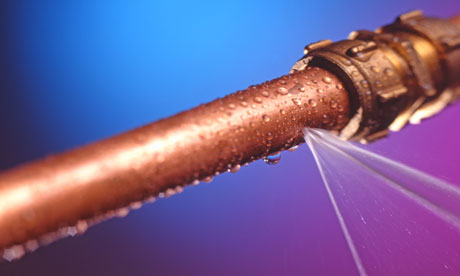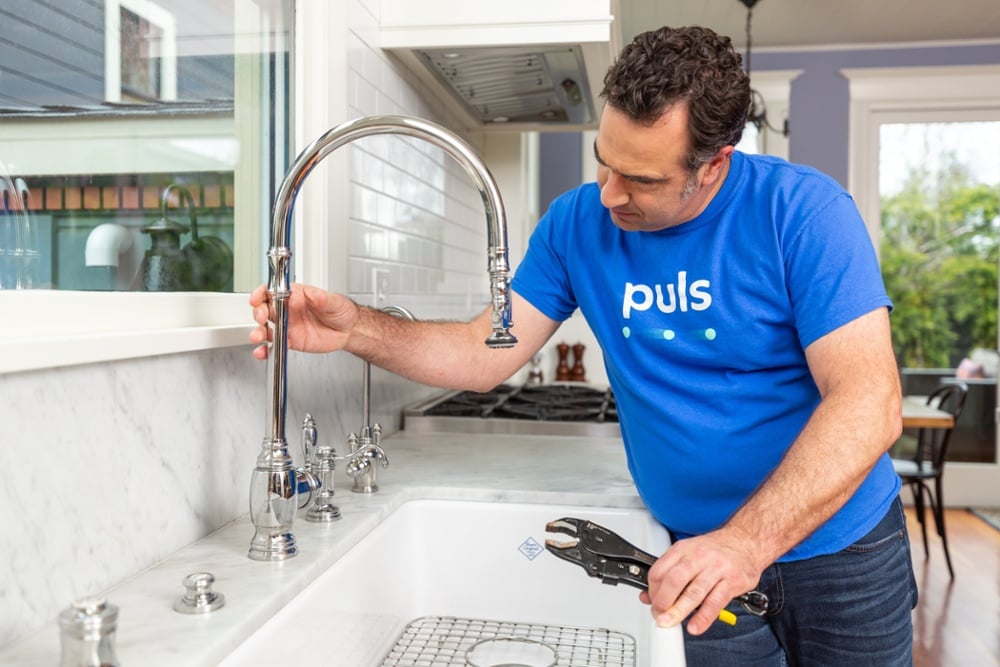Appliance Difficulties? Why Some Issues Require a Skilled Plumber
Appliance Difficulties? Why Some Issues Require a Skilled Plumber
Blog Article
Just about everyone maintains their own way of thinking in relation to Why Do My Plumbing Pipes Make A Knocking Noise.

To detect loud plumbing, it is important to determine first whether the unwanted sounds happen on the system's inlet side-in other words, when water is turned on-or on the drain side. Noises on the inlet side have varied causes: extreme water pressure, worn valve as well as faucet parts, improperly attached pumps or various other home appliances, improperly placed pipe bolts, and also plumbing runs consisting of too many tight bends or various other limitations. Noises on the drain side generally originate from bad location or, similar to some inlet side noise, a layout having limited bends.
Hissing
Hissing sound that takes place when a faucet is opened a little normally signals extreme water pressure. Consult your local public utility if you believe this trouble; it will be able to tell you the water stress in your location as well as can install a pressurereducing valve on the inbound water pipeline if required.
Other Inlet Side Noises
Squeaking, squealing, scraping, snapping, and also touching typically are caused by the development or tightening of pipes, generally copper ones providing hot water. The sounds take place as the pipelines slide against loosened fasteners or strike nearby residence framework. You can typically determine the place of the problem if the pipelines are subjected; just adhere to the noise when the pipes are making sounds. Most likely you will certainly find a loosened pipe wall mount or an area where pipelines lie so close to flooring joists or other mounting pieces that they clatter versus them. Connecting foam pipe insulation around the pipelines at the point of contact need to fix the trouble. Make sure straps as well as hangers are safe and give sufficient assistance. Where possible, pipeline fasteners need to be affixed to enormous structural elements such as structure walls rather than to framing; doing so minimizes the transmission of resonances from plumbing to surfaces that can intensify as well as move them. If attaching bolts to framing is inevitable, cover pipelines with insulation or other resilient material where they speak to fasteners, and also sandwich the ends of new bolts between rubber washers when mounting them.
Fixing plumbing runs that struggle with flow-restricting tight or countless bends is a last resort that ought to be taken on only after seeking advice from a proficient plumbing professional. Sadly, this scenario is rather common in older houses that might not have been built with interior plumbing or that have actually seen several remodels, especially by novices.
Babbling or Shrilling
Intense chattering or screeching that happens when a shutoff or tap is activated, and that usually vanishes when the installation is opened totally, signals loosened or defective internal parts. The option is to replace the valve or faucet with a brand-new one.
Pumps and also devices such as cleaning machines and dishwashing machines can transfer electric motor sound to pipelines if they are poorly attached. Connect such things to plumbing with plastic or rubber hoses-never rigid pipe-to isolate them.
Drainpipe Noise
On the drain side of plumbing, the chief goals are to eliminate surfaces that can be struck by falling or rushing water and to protect pipes to include inevitable noises.
In new building, tubs, shower stalls, bathrooms, as well as wallmounted sinks as well as basins ought to be set on or against resilient underlayments to reduce the transmission of sound through them. Water-saving toilets and also taps are much less loud than traditional designs; install them rather than older types even if codes in your area still permit using older components.
Drainpipes that do not run vertically to the cellar or that branch right into horizontal pipe runs sustained at floor joists or other mounting existing particularly frustrating sound issues. Such pipes are huge enough to emit substantial resonance; they likewise lug significant quantities of water, which makes the circumstance worse. In brand-new building and construction, define cast-iron soil pipes (the huge pipelines that drain toilets) if you can manage them. Their massiveness contains a lot of the noise made by water passing through them. Likewise, prevent routing drainpipes in walls shown to bed rooms and also spaces where people gather. Wall surfaces consisting of drainpipes should be soundproofed as was explained earlier, making use of double panels of sound-insulating fiberboard and also wallboard. Pipes themselves can be wrapped with special fiberglass insulation created the function; such pipes have a resistant vinyl skin (in some cases having lead). Results are not always satisfying.
Thudding
Thudding noise, usually accompanied by trembling pipelines, when a faucet or device valve is turned off is a problem called water hammer. The noise and also vibration are brought on by the reverberating wave of stress in the water, which all of a sudden has no area to go. Often opening up a valve that releases water rapidly right into a section of piping consisting of a restriction, joint, or tee fitting can generate the same problem.
Water hammer can usually be healed by setting up fittings called air chambers or shock absorbers in the plumbing to which the issue shutoffs or faucets are attached. These devices enable the shock wave developed by the halted flow of water to dissipate airborne they contain, which (unlike water) is compressible.
Older plumbing systems might have brief upright sections of capped pipe behind wall surfaces on faucet runs for the very same purpose; these can ultimately loaded with water, decreasing or ruining their performance. The cure is to drain pipes the water system totally by shutting down the major supply of water shutoff and also opening all faucets. After that open up the main supply valve as well as shut the taps one at a time, beginning with the faucet nearest the valve and ending with the one farthest away.
Pipe Down! What to Do About Noisy Water Pipes
Banging
Does it sound like someone's hitting your pipes with a hammer every time you run water? The issue could be a phenomenon called water hammer, which happens when a water valve closes suddenly. You'll often hear it when your washing machine stops filling, for example. The momentum and pressure from the water flowing toward the valve create the shockwave that causes the banging noise when the valve closes suddenly. It might not seem like a big deal, but water hammer can cause damage to your pipes, including leaks and joint damage.
One way to ease water hammer is by installing water hammer arrestors. Your plumber can install them near major valves to help cushion the shock of the water when it suddenly stops or changes direction. You might also need to reduce the water pressure coming into your home with the pressure-reducing valve.
Gurgling
Gurgling sounds typically come from drainpipes. This sound happens when the water can't drain properly, usually when there's a clog in the water pipes. Drain clogs often happen due to hair, grease, soap scum or objects that fall down the drain. They can happen suddenly or build up slowly over time.
You can sometimes clear a clogged drainpipe with a plunger to help force the clog through the pipe. A plumbing snake or an auger can also help break up tough clogs. A common plumbing myth is that chemical drain cleaners are safe and effective, but they often don't work and contain harsh chemicals that can hurt you and your plumbing. If you can't remove the clog with a plunger or snake, it's best to call a plumber to help.
Rattling
Water travels through your pipes with lots of pressure, so the pipes are bound to move a little. Pipes should be secured well to keep them from moving too much when water runs through them. If they're not properly fastened or the fasteners come loose, you might hear them rattling when you run water.
Resecuring the pipes can cut down on the rattling noise and prevent damage to the joints of the water pipes. However, many pipes run behind walls where you can't easily access them. A plumber can help determine if loose fasteners are the cause of the rattling and resecure them if necessary.
Humming
If your pipes sound like they're humming, it's likely a water pressure issue. When the water pressure is high, it can cause the water pipes to vibrate and create a humming sound. High water pressure is more common if you have a well for your water, but it can happen with municipal water as well. High water pressure can damage your plumbing and cause leaks.
If you have a well, check the pressure to ensure it's below 55 pounds per square inch. A plumber can test the pressure for you and help adjust the issue if you're not sure how to do it yourself. If you're connected to the municipal water source, your home likely has a pressure-reducing valve near where the water enters your home. You can adjust the screw in the valve to decrease the pressure, but be careful not to lower it too much.
Squeaking
Squeaking or squealing is another common sound you'll hear in your water pipes. This often happens if small components within the plumbing, such as washers or aerators, become loose, dirty or damaged. When this is the cause, the squeaking sound is usually confined to a certain fixture or area of plumbing. Replaced or repairing the part should solve the noise.
If you can hear the squealing sound everywhere in your home, it could be an issue with water pressure. Buildup in the pipes narrows the space for the water, which can cause squealing as the water tries to squeeze through the pipes. Wear and tear on the plumbing system can also cause whistling or squeaking. These situations typically require a professional plumber to diagnose and repair.
https://www.homeserve.com/en-us/blog/home-improvement/water-pipes-making-noise/

I came across that piece of writing on Why Do My Plumbing Pipes Make A Knocking Noise when doing a lookup on the web. Don't hesitate to set aside a second to distribute this blog if you liked it. Thanks a lot for your time. Visit us again soon.
Schedule Report this page